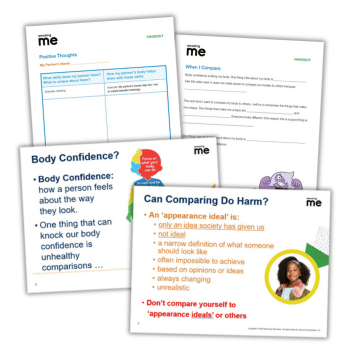‘If there is bullying in the staffroom, then there will definitely be bullying amongst the pupils’

Bullying is as unacceptable in the staffroom as it is in the playground, says John Dabell – or is it…?

- by John Dabell

One of the few joys of supply teaching is that you can walk away at the end of the day and never go back. This is especially useful when you encounter bullying – by the staff.
Give me 10 minutes in any staff meeting, and I’m 95% certain that I’ll have worked out who the school bully is, and who the cowering lieutenants that tag along are, too afraid to disagree and say otherwise. Having been into a fair few staffrooms and meetings, my PH test doesn’t take long to turn red as the toxic tormentors reveal themselves with an acidic comment, stare or behaviour that indicates they are in control.
If there is bullying in the staffroom, then there will definitely be bullying amongst the pupils. I’ve seen it time and time again – after all, staff who intimidate their colleagues aren’t the best people to ensure that the school’s anti-bullying policy is adhered to. Children notice too. They aren’t daft, and they know when their teacher isn’t happy.
The daily grind
Bullying in the workplace is commonplace. Schools have their fair share of those active, petty-minded individuals who seem to glide through life with an officious air, seemingly untouchable and protected. The bullying is rarely physical but rather, psychological and social.
Your staff school bully likes to think that they rule the roost – and in some cases they might, with many sitting pretty in senior management positions. Staff may be persistently picked on and undermined, through trivial, constant, destructive criticism combined with petty humiliation and a refusal to value or acknowledge achievements and performance.
It makes work depressing. If you are the target, your self-esteem withers away and you feel the stress building before every staff meeting, because you know a bully likes an audience. You could be the butt of some jibe, dig or pathetic put-down. This daily pressure takes its toll, and before you know it, you just aren’t your normal self and your job, your home life and your sleep become negatively affected.
Your daily existence is one of low morale, demotivation and disaffection – yet you have to put a brave face on for the children. and you still need to pay the mortgage. You grin and bear it and you soldier on – or at least try to, until you become unwell. Cumulative stress can lead to a compromised immune system – and teaching is stressful enough, without the added pressure of someone who doesn’t like you.
The school bully is normally an arrogant person who is emotionally and professionally insecure. Why might you be a victim?
Well, you could be new to the school and seen as a threat, because you have come with a good reputation and children like you. You could be competent, dedicated and popular – everything, in fact, a bully aspires to being. It could be that you have disclosed too much of your personal life and the bully has seized upon a chink in your armour and homed in on vulnerability.
It could be that your face just doesn’t fit and the bully doesn’t like the clothes you wear, the car you drive or the joke you told that had everyone laughing last week.
Tackling the issue
So what should your response be if you find yourself on the receiving end of bullying behaviour? Just as you would advise your students, your number one priority must be to get help. If you are a member of a union – which is highly recommended – they will be well placed to offer you the support and protection you need.
Your school should have a robust policy in place to protect staff as well as students; if it doesn’t, this is something to raise with the SLT and/or governing body.
It might be tempting to share your innermost thoughts with a colleague, but you need to be 100% sure that what you have to say won’t somehow reach the source of all your anxiety. I have seen one or two colleagues pour their heart out to other teachers, only to come unstuck after confidences have been broken.
Make sure you start to keep a diary as soon as you notice a pattern of intimidating behaviour. Evidence is crucial, so as painful as it might be, it’s useful to keep a written record of any incidents, noting any witnesses. Trying to clear the air with the bully directly is something I have seen work, but it’s not a route for everyone.
Of course, if you feel life is becoming intolerable, you might want to consider a change of environment – but that should always be a last resort. Putting up with put-downs and feeling isolated and intimidated is not why you joined teaching.
Whatever the circumstances, bullying isn’t something anyone should accept. You don’t when it comes to the children – and believe it or not, your own wellbeing is just as important.
John Dabell is a teacher with 20 years’ experience teaching in primary and secondary schools, an author of maths, science and English books and a trained Ofsted inspector; for more information visit www.johndabell.co.uk. Browse resources for Anti Bullying Week.










